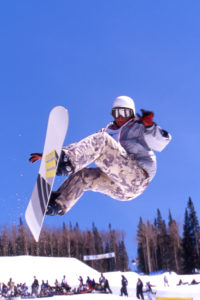 The Winter Olympics are currently on in Sochi, Russia and I’m enthralled as usual with high performing athletes. These amazing athletes have a lot to teach us coaches, and our clients.
The Winter Olympics are currently on in Sochi, Russia and I’m enthralled as usual with high performing athletes. These amazing athletes have a lot to teach us coaches, and our clients.
One thing that always strikes me is the concept of going for your Personal Best. For example, I was watching the Figure Skating event for the women in the team competition and the young American woman performed just above her personal best. The winner from Russia also did above her personal best.
Commentators would also comment if a competitor had performed under their personal best. This concept goes across many sports and is how an athlete assesses their current performance so they know how to improve.
So how do we apply this concept of “personal best” to ourselves and our coaching clients?
Discover your current Personal Best
We have to discover what our current ‘personal best’ is then decide how we might go about improving on that. It’s part of the psyche of most people to want to keep improving and do even better. As someone who mentors coaches to increase their coaching skills competency and prepare for their ICF credential, I am called on to help coaches determine their current ‘personal best’ and provide guidance on how they can improve, so they have the potential to increase their personal best to meet ICF competency standards.
When you don’t succeed the first time….
Sometimes our personal best isn’t good enough to ‘win’ the competition, or to pass the ICF credentialing exam the first time. High performing athletes, whether they medal or not, have a habit of going back to work, looking at what they did well, and what they need to improve upon. Most don’t give up; they use their current ‘score’ to help them decide what their next score is.
Coaches who either join The Mentor Coaching Group, or work with Karen or myself individually, follow the same principle. They use their current competency skill score as the platform for going back into practice, refining their skills and focusing on increasing their next score above their previous personal best. The mindset shift from ‘I’ve failed’ to ‘exceeding my personal best’ is far more motivating and pulls people forward energetically.
Success Strategies to Employ
Here are other success strategies I notice from high performing athletes that can be applied to ourselves as coaches and our clients, which I’d say is part of our “Coaching Presence:”
They spend time imagining (or visualizing) themselves doing their personal best, and walk themselves through the finer steps in their mind. They may hear themselves saying what would support them be at their personal best, how they may feel all along the way, and how they might celebrate when they ‘win.
Similar to imagining, athletes use relaxation techniques to get centered and disengage from their fears, their thoughts and expectations from others…and to be more fully present with themselves. Meditation can be used as a spiritual tool. Yet the idea of quietening your mind is a powerful method for improving our mental capability to handle ours and others emotions better, and to be centered in general.
Commit to 5 minutes a day…
Any relaxation technique is worth making a daily habit, even if it’s only 5 minutes a day. My personal experience is that the effects are profound and help me to be more present, centered, and disengaged from all the ‘noise’ of my mind and others. As coaches, being centered is so important to the central competency in The Target Approach of Coaching Presence. Our clients have access to “Centering in Your Coaching Presence” techniques.
The newly crowned SuperBowl football champions, the Seattle Seahawks, practice meditation, yoga and visualization, which is so gratifying to hear. If the ‘tough’ guys realize the benefits in terms of results, then there is hope opportunity for us and our clients to use engage in these techniques too.
No matter if you are a newer coach or a seasoned coach. Or maybe you are preparing for an ICF ACC, PCC or MCC credential; all of us can draw on techniques used by Olympic athletes. And isn’t the concept of going for your personal best a kinder perspective to hold about yourself and others?
Are you preparing to apply for your ICF MCC, PCC or ACC credential?
Or do you need Core Competency CCE’s to renew your credential (our group has 10.5 approved hours for core competencies)
Our next Mentor Coaching Group begins March 4, 2014 for 3 months, and is filling fast. A maximum of seven participants. Once full, registrations will be closed.
For more information and to register visit The Mentor Coaching Group.
 Carly Anderson, MCC and Karen Boskemper, PCC – your Mentor Coaches who can’t wait to support you in your credentialing journey!
Carly Anderson, MCC and Karen Boskemper, PCC – your Mentor Coaches who can’t wait to support you in your credentialing journey!
